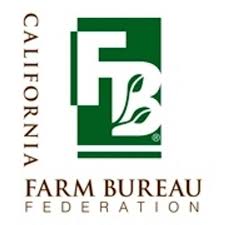March 27, 2019 - By Taylor Roschen - Nothing worth having comes easily. Farming is a tough job, but farmers like that it's tough. Overcoming adversity, living with the unknowns of nature and,  nonetheless, persevering—this is the ethos of our rural, agricultural communities.
nonetheless, persevering—this is the ethos of our rural, agricultural communities.
And Sacramento sure doesn't make it any easier. The pressure on the business climate, prioritization of urban concerns over rural concerns, and lack of practicality in policymaking has required our farming leaders to step up and not just get tougher, but get smarter, too.
We're proud of the $50.4 billion farm gate value of California agriculture, but as practitioners, farmers know the figure doesn't truly represent all that agriculture provides to the state's economy and, specifically, our local economies. The towns and cities of today would not exist but for the farms and ranches that provide jobs and opportunity for their neighbors.
Bookkeepers; pest control operators; farm managers; irrigation specialists; farm employees; equipment retailers; feed, seed and fertilizer suppliers—individuals, small businesses and local governments across the state depend on farmers. Let's not forget those who work for packinghouses and food processors, the haulers, and those at the ports of Oakland and Long Beach, who allow us to share California's bounty with the world.
When considering this bigger picture and agriculture's impact, $50 billion hardly scratches the surface, and farmers and ranchers deserve the credit.
Now what will these rural communities look like in 2040? That's the deadline for groundwater basins to achieve "sustainability," as defined by the Sustainable Groundwater Management Act, or SGMA. Numerous studies, including one recently published by the Public Policy Institute of California, find that SGMA will result in the fallowing of more than half a million acres in the San Joaquin Valley alone. This shouldn't make just farmers shift in their seats, but also all the small businesses and local governments that rely on the economic benefits derived from agriculture.
The ability to be resilient—for farmers, their families and communities—depends on California-grown, farmer-led solutions. And for those solutions to be truly effective, we need data.
To help, Farm Bureau is sponsoring the Agriculture and Rural Prosperity Act of 2019. This bill, Assembly Bill 417, authored by Assemblymember Rob Rivas, D-Hollister, would create a position at the California Department of Food and Agriculture explicitly to advise on how to help maintain the state's rural, agriculturally based economies. The bill would also obligate the state to more consistently engage in issues that matter to farmers, ranchers and rural residents.
AB 417 isn't a silver bullet, but it will get us part of the way toward gaining the resources rural areas need to thrive: technical assistance to navigate California's regulatory minefield, better access to state and federal programs, broadband accessibility, scaling up and deploying agricultural technology on the farm, workforce development, agricultural education and agritourism.
And let's close the loop on the policy process: AB 417 will require the state to do a true economic assessment of the impacts of SGMA, not just a cursory glance. Under the Agriculture and Rural Prosperity Act, the state will review and report on the direct and indirect economic impacts on agriculture and local economies of this policy, including land idling, production levels, job losses, land values, and property and income tax revenues. The idea is not just to describe the impacts we know are coming, but to help us be proactive and resilient when they arrive.
Farming is a tough job, and it might get tougher. But as we said at the start, nothing worth having comes easily. And, as the quote from Theodore Roosevelt continues, "I have never in my life envied a human being who led an easy life. I have envied a great many people who led difficult lives and led them well."
Please ask your legislators to support AB 417, the Agriculture and Rural Prosperity Act.
(Taylor Roschen is a policy advocate for the California Farm Bureau Federation. She may be contacted at troschen@cfbf.com.)
Reprinted with permission: California Farm Bureau Federation








